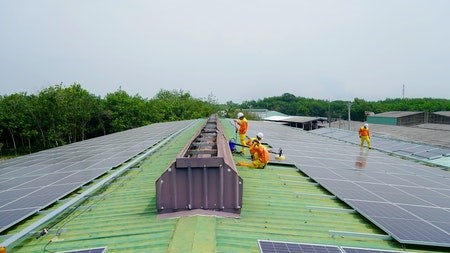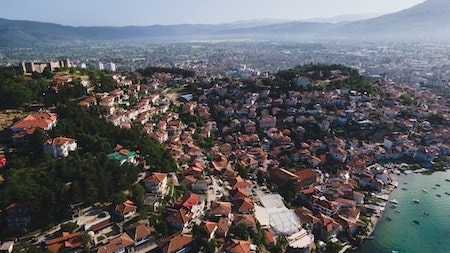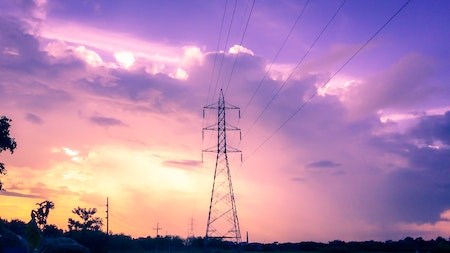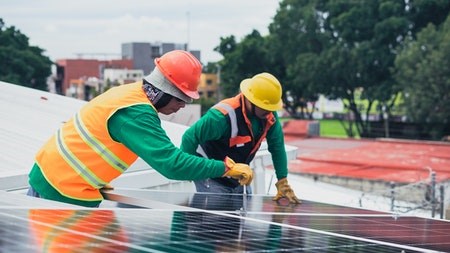Electricity price hikes and stage 6 load shedding have seen many South Africans turning to alternative power sources and backup systems, but how does one choose the correct system, how do you look after it and make sure that it’s adequately insured?
“South Africans don’t only need to pay increasingly more for electricity, but are also constantly aware of pressure on the national power grid that can leave them in the dark in an instant,” says Anneli Retief, Head of Dialdirect Insurance, “It’s going to take a joint effort to lower consumption, but in doing this, there’s also an opportunity for small adjustments and smart investments that could save them a substantial amount of money in the long run.”
As a good starting point, Dialdirect and the team at Solar Craft use the energy pyramid for efficiency:
- Energy saving (no or low cost): Switching off lights, setting geyser thermostats to a lower temperature, using less hot water, unplugging devices and appliances that are not in use etc.
- Energy efficiency (relatively low cost): Energy-efficient globes and other devices, geyser timers, heat pumps or solar panels for geysers.
- Renewable energy (higher cost): Alternative energy sources like solar water heating and solar panels provide excellent value, along with independence from the network and a lower impact on the environment.
“It’s not all or nothing, though, because one can adopt a phased approached in switching to an energy smart household,” Retief says. “Firstly, focus on savings and efficiency and address the biggest electricity consumers in your home first. Then you can look at backup systems like batteries that charge from the grid to help you during outages, systematically adding more batteries to keep you going for longer, or with more devices and appliances switched on. In the last phase you can consider energy generation through alternative sources like solar panels – adding more panels as you go to make you more independent from the grid.”
When it comes to choosing a system, Rohann Mattheus, a director at Solar Craft, says that the best solution for you is firstly determined by your current consumption and how energy efficient you are – not the size of your house or the amount of people in it – and secondly by your requirements during an outage:
- Lights only: A small system of around R15 000 should work for sporadic outages of a few hours. It charges from the grid and switches to battery power when supply is interrupted. Energy-efficient globes help to get the maximum runtime from batteries. In this scenario, solar panels don’t make a notable savings difference.
Lights and essential devices: If you need to keep devices like TVs, computers, Wi-Fi, electric fences, alarms and fridges running, a 3kW inverter with 2.4kWh battery capacity (3 hours standby) is the minimum requirement. A 5kW inverter is recommended for upgradability. For around R60 000 a system with 1.8kW, solar panels can be installed, with estimated savings of about 8kWh to 10kWh on a sunny day. (A kWh is the unit in which electricity consumption is measured and indicated on your bill or prepaid meter. The current electricity rate amounts to about R2 per kWh.)
Lights, essential and non-essential devices: Should you add devices like washing machines, pool pumps and microwave ovens, a 5kW inverter with a 4.8kWh battery (3 hours standby) is the minimum requirement, although an 8kW inverter is recommended for upgradability. For about R90 000, one can install a 5kW system with 3kW solar panels and a 4.8kWh lithium battery, with estimated savings of 15kWh to 18kWh on a sunny day.
- Heating systems: This includes geysers, stoves and heaters. The latter two can be powered by a solar panel or gas system, but for geysers a solar water heater system- i.e. using pipes, not solar panels - is strongly recommended as a more money smart investment.
Solar panel and solar water heating systems are an excellent investment with no or low risk, with solar water heating systems that can – through savings - pay for themselves in less than 24 months and solar panel systems that can do the same in about 3.5 to 6 years.
Dialdirect and Solar Craft highlight these things to look out for when choosing an energy supplier or service provider:
How long they’ve been in business, their number of successful installations and how well the business will be able to provide after sales support in 5 years’ time.
Whether they have positive feedback from their existing or previous clients.
Whether their installations adhere to SANS and NERSA requirements, are done by qualified and registered electricians and whether an electrical engineer checks the quality of components and installations.
Whether they have enough knowledge to provide good advice and whether the product that they offer is 100% suited to your needs.
Whether they issue a Certificate of Compliance (COC) after the installation.
When it comes to the design of and care for these systems, it’s better to get a system that is slightly bigger than what you need, as pressure on the system will be lower, limiting the risk of problems. All standard protection mechanisms should be included, and components should be installed in a suitable space to ensure optimal running temperature and minimal exposure to dust and water.
In terms of safety, most modern inverters have monitoring systems that will alert you when something is amiss. It’s important to address this immediately, have the source of the problem located and fixed.
In closing, Retief points out some important things to consider when insuring your backup or generation system:
Freestanding systems can be specified under all risk insurance, or it can be covered under home contents (if it’s not located outside). Systems that are permanently connected to a building will be covered under buildings insurance, but the insured value of the building must be adjusted accordingly.
Any installation must be done according to the manufacturer’s specifications and, where applicable, the relevant building regulations.
Inclusions and exclusions are, in most cases, the same as for all risk insurance, home contents and buildings insurance, depending on where the system is included or specified. It is however important to get clarity directly from your insurer.
The guidelines listed above are a good start to choosing the right system,
Writer : Dialdirect Insurance





